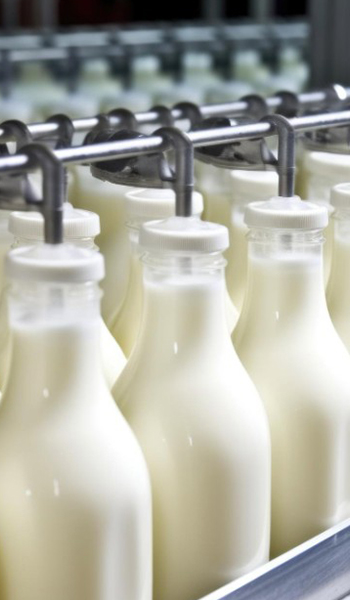Quality Control and Inspection
Packaging Integrity:
Machine vision systems are used to inspect packaging for defects such as incorrect labeling, damaged seals, and improper closure. This is especially critical in ensuring that dairy products (like milk cartons, cheese packaging, or yogurt containers) meet safety standards and have the correct expiration dates, nutritional information, and batch numbers.
Product Appearance Inspection:
Vision systems can check the appearance of dairy products, such as color consistency in milk or cheese, checking for contaminants, or ensuring that the texture is consistent with product standards.
Labeling and Barcode Verification
Label Accuracy:
Ensures that labels on dairy products are correctly applied, properly positioned, and have the correct information (such as product name, expiration date, and batch number).
Barcode and QR Code Scanning:
Vision systems can verify barcodes or QR codes on packaging for traceability and inventory management, ensuring products are properly tracked from production to delivery.
Fill Level Detection
Container Fill Level Verification:
Vision systems can verify that containers, bottles, or cartons are filled to the correct level, ensuring that products are not under-filled or over-filled. This helps prevent product waste and ensures consistency in packaging.
Foreign Object Detection
Contaminant Detection:
Vision systems can be used to detect foreign objects (such as plastic, metal, or glass) in dairy products during the production process. For example, in liquid dairy processing or cheese production, foreign contaminants can be detected before products are packaged, reducing the risk of consumer complaints or recalls.
Regulatory Compliance
GMP and Food Safety Standards Compliance:
Vision systems can help ensure that dairy products are produced according to Good Manufacturing Practices (GMP) and food safety standards by providing automated inspection, tracking, and quality control.
Hygiene Monitoring:
Vision systems can help identify cleanliness issues in production areas (such as residue on equipment) that may lead to contamination, ensuring that production areas are compliant with hygiene standards.
Traceability and Batch Management
Batch Identification and Traceability:
Vision systems play a crucial role in ensuring that each batch of dairy products can be traced from the raw material stage through to the final packaging. This is essential for recalls or quality audits.
Tracking Expiration Dates:
Vision systems verify and monitor expiration dates or best-before dates to ensure that products are shipped before they expire, reducing waste and maintaining product freshness.
Benefits for Dairy Companies :
- Enhanced Product Quality: Vision systems help detect defects and inconsistencies, ensuring that only high-quality products reach consumers.
- Increased Production Efficiency: By automating key processes like inspection, sorting, and labeling, dairy manufacturers can increase throughput while maintaining quality standards.
- Cost Reduction: Automation helps reduce labor costs, while early detection of defects minimizes waste and avoids costly recalls.
- Regulatory Compliance: Machine vision systems help ensure that dairy products meet food safety regulations and quality standards, which is critical in a highly regulated industry.
- Improved Traceability: Vision systems enable batch tracking and serialization, making it easier to recall products if necessary and ensuring consumer safety.

